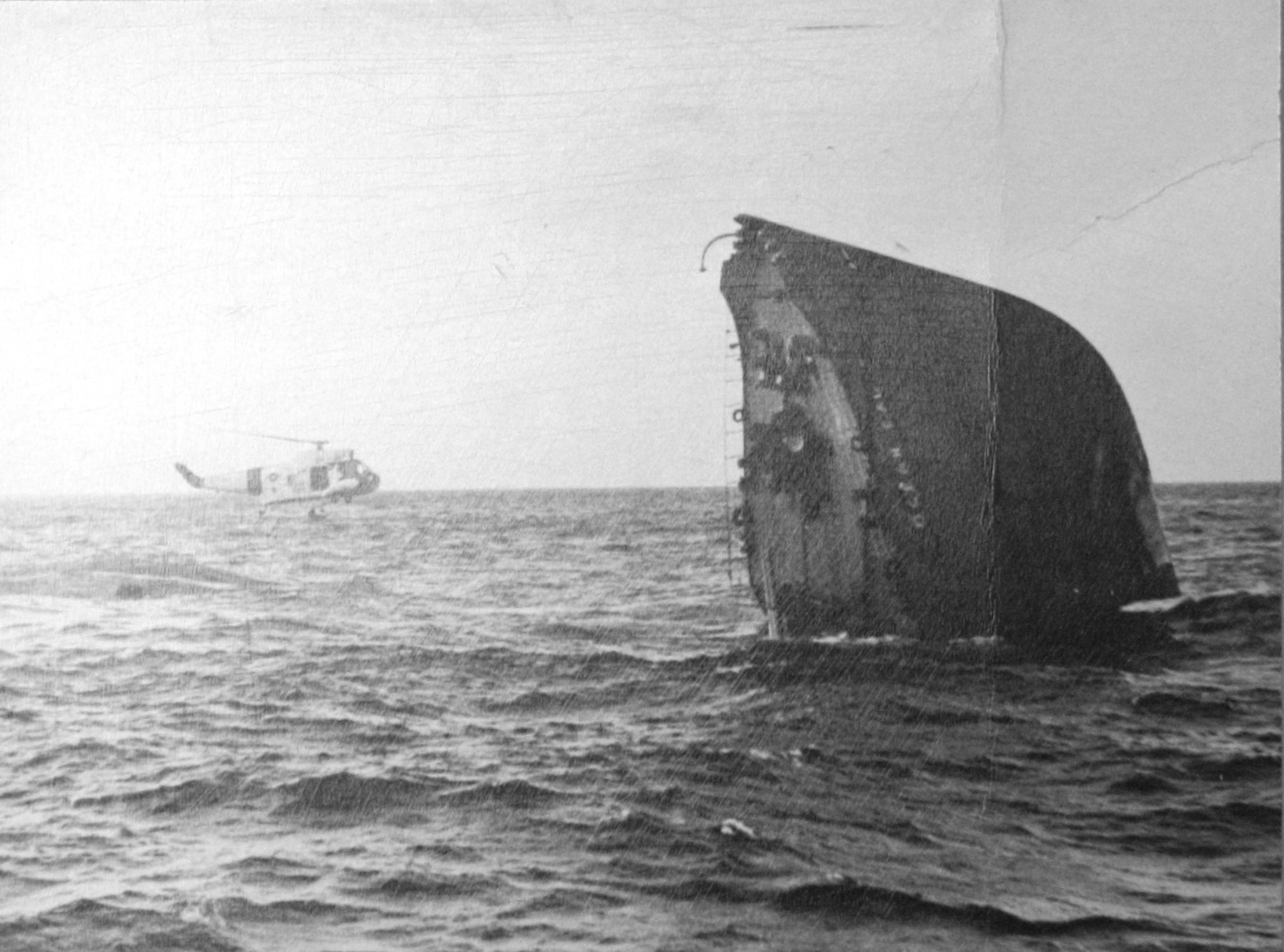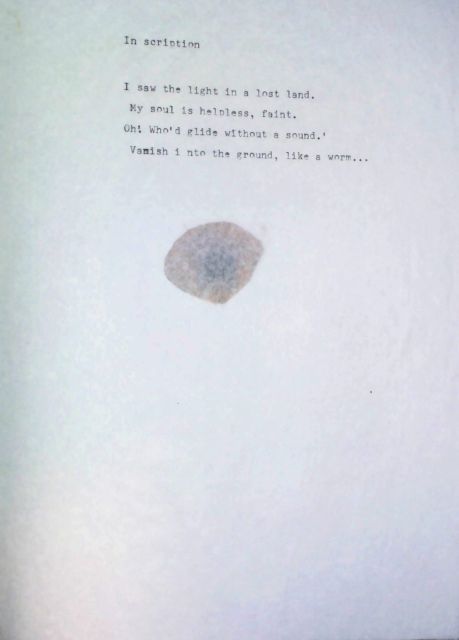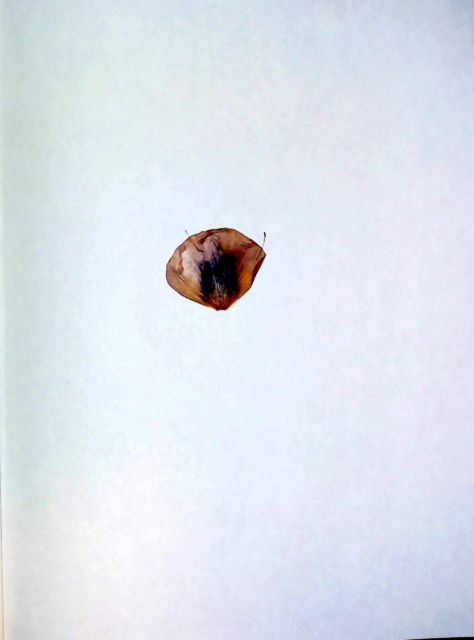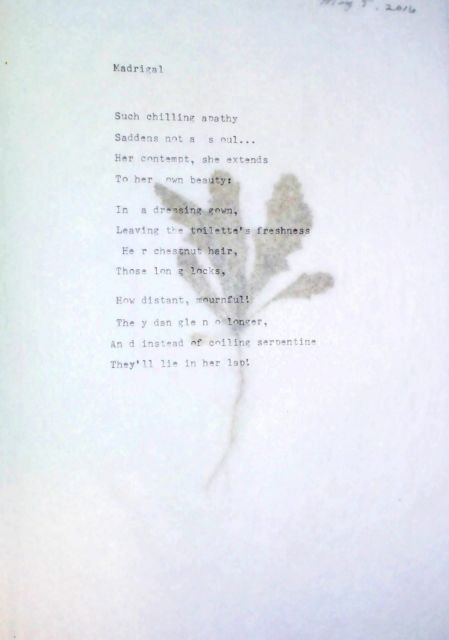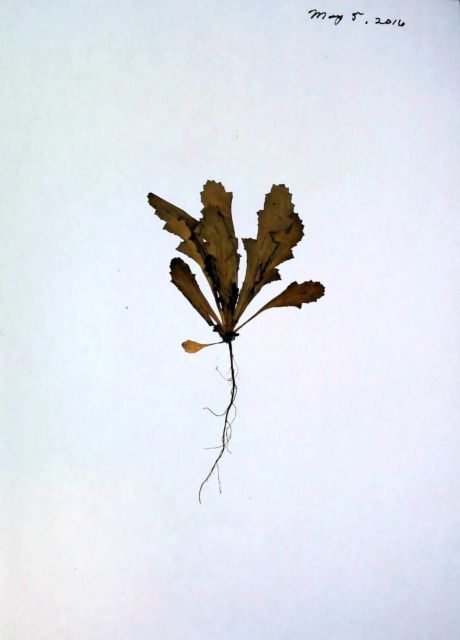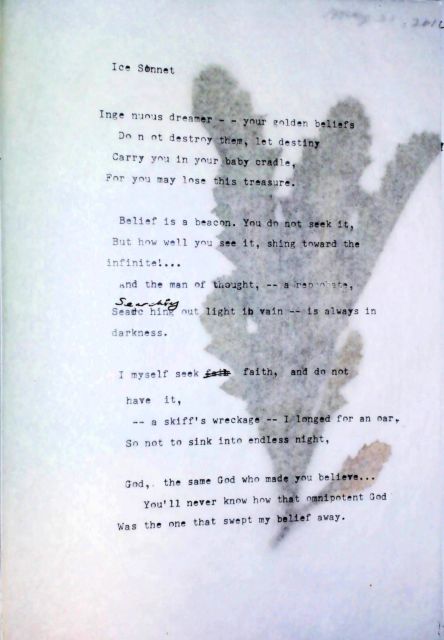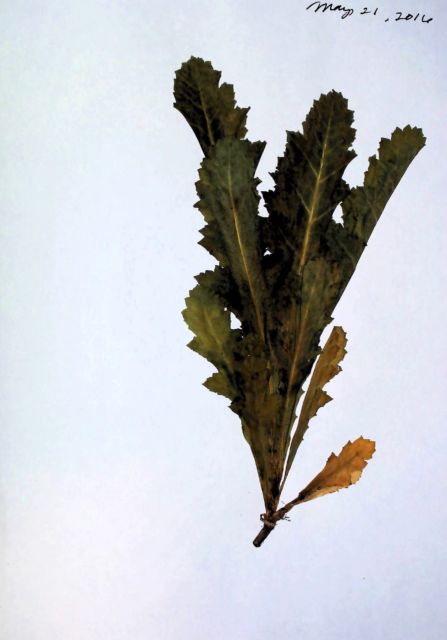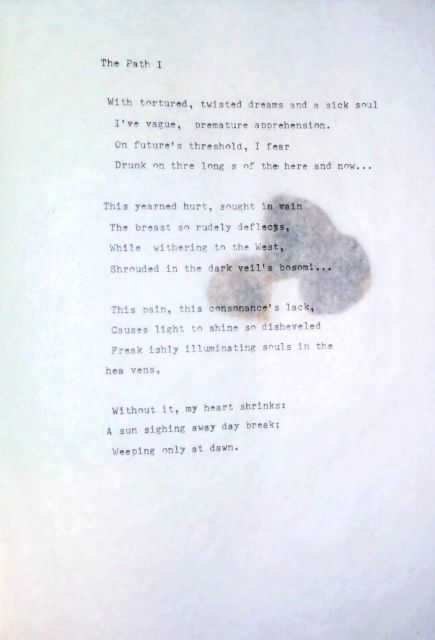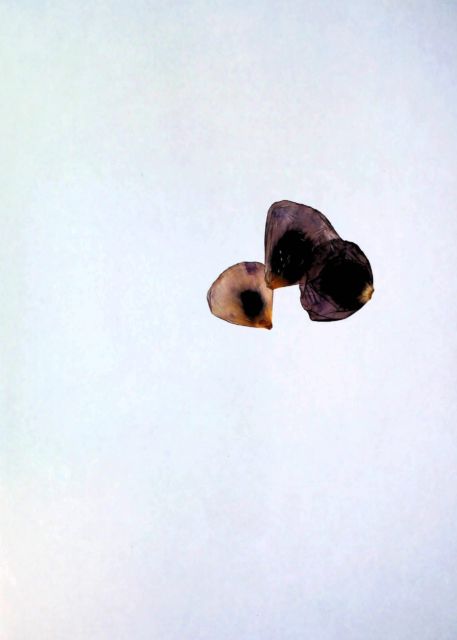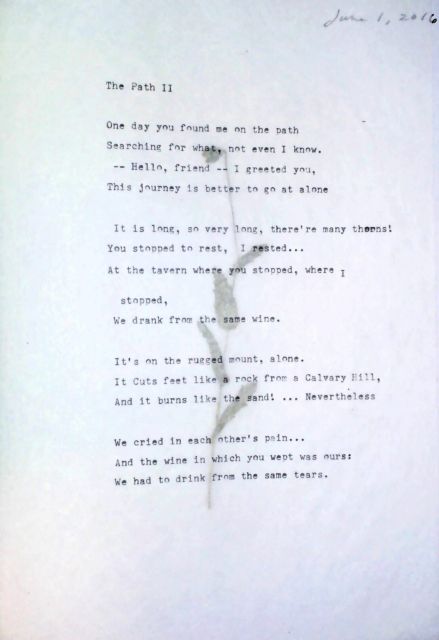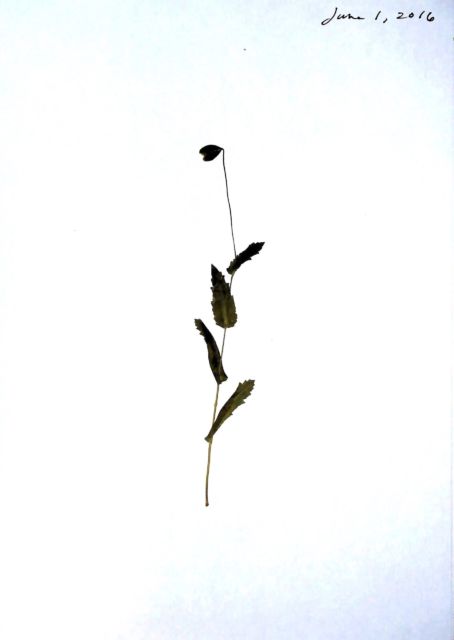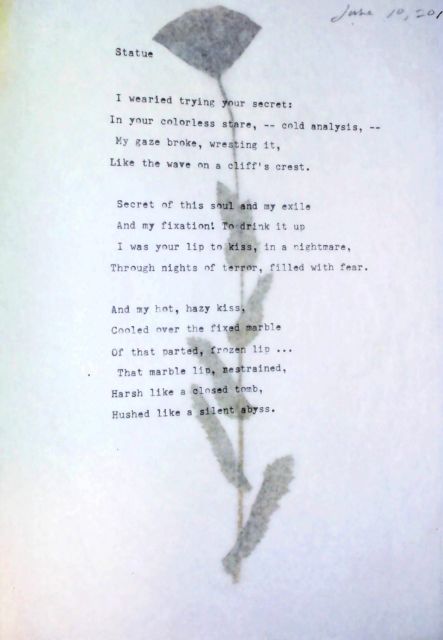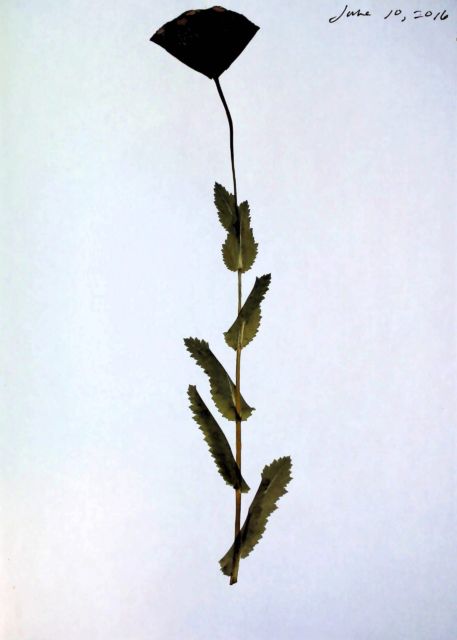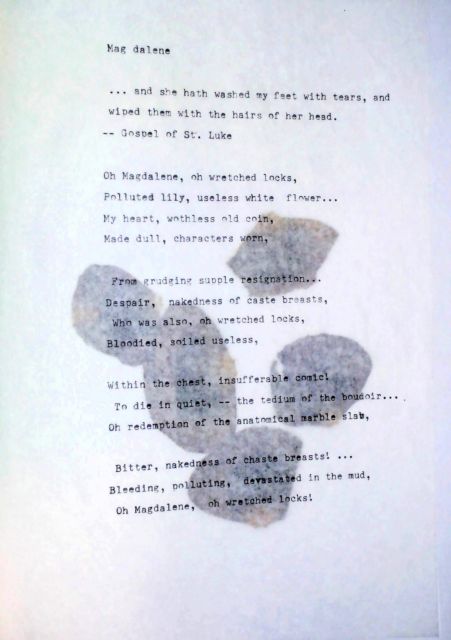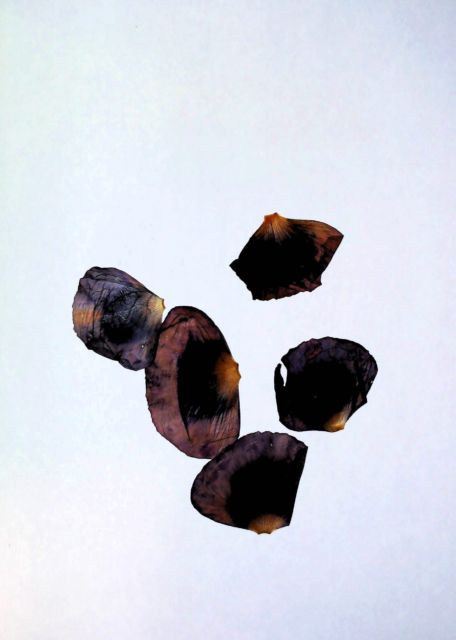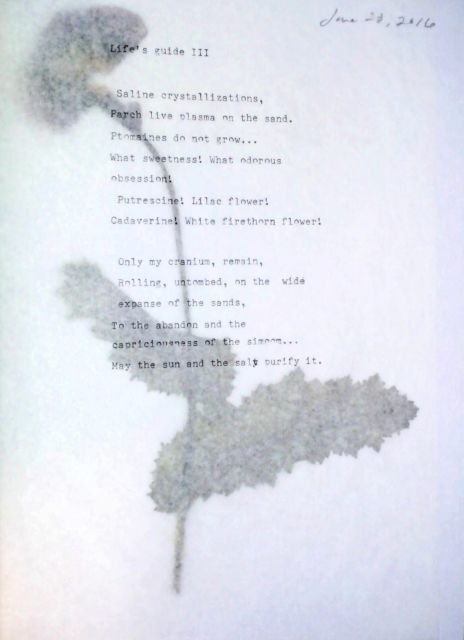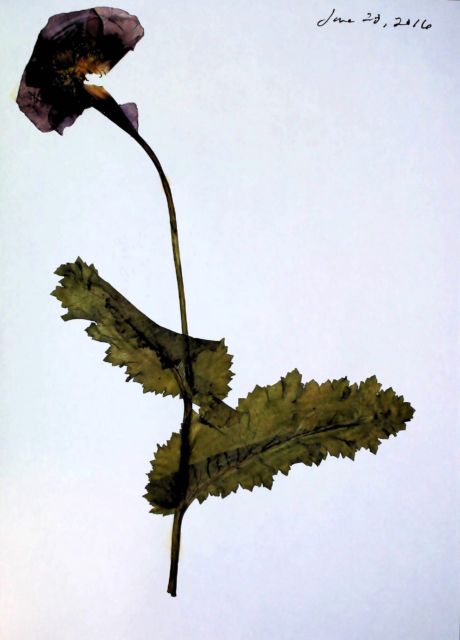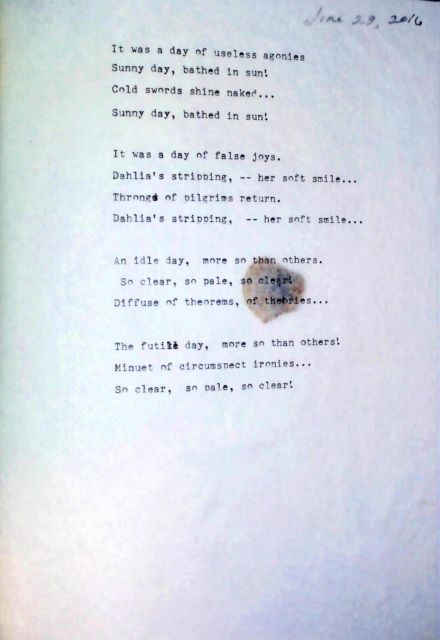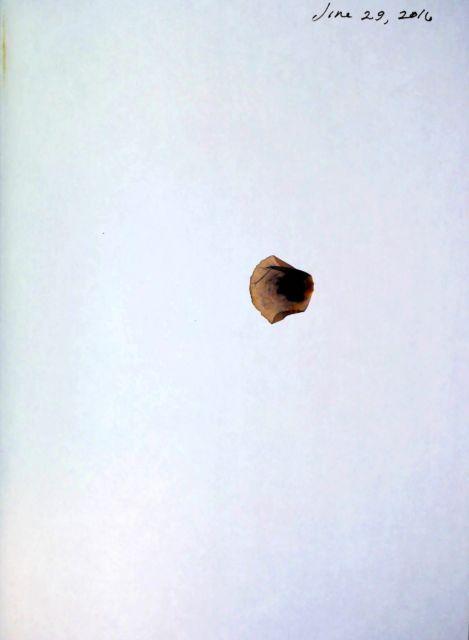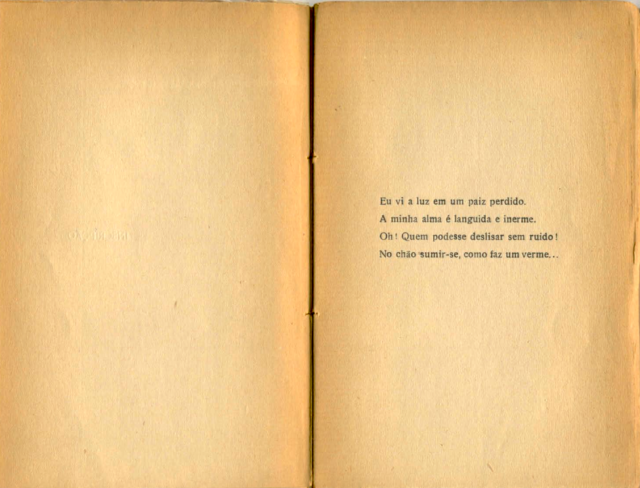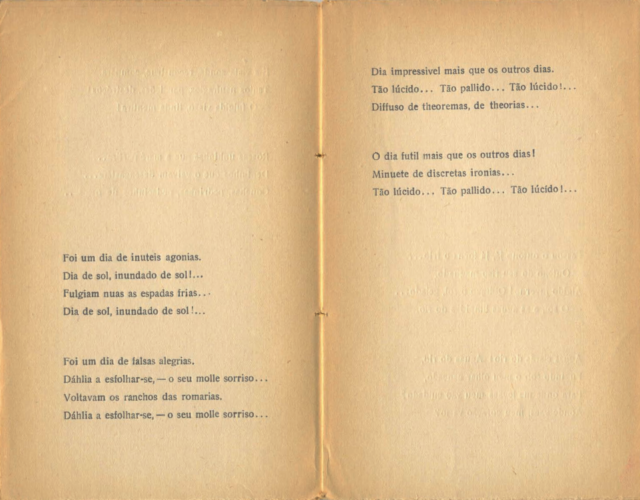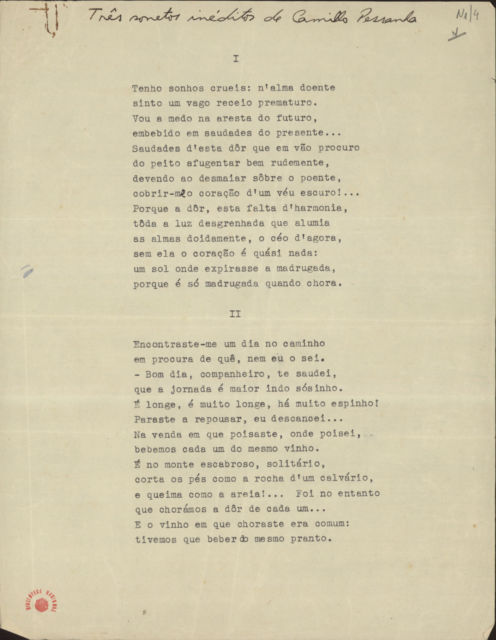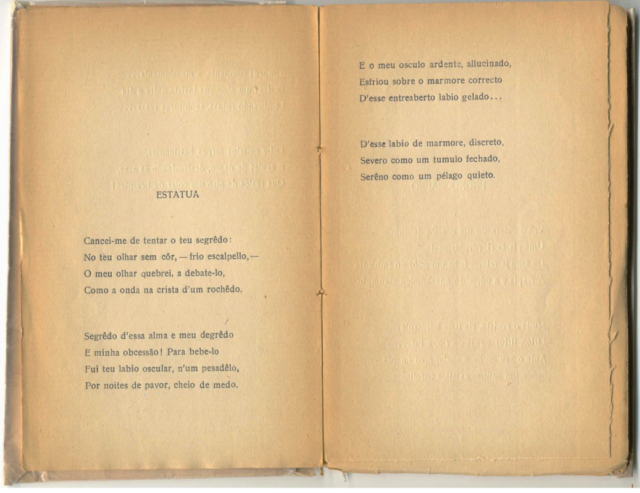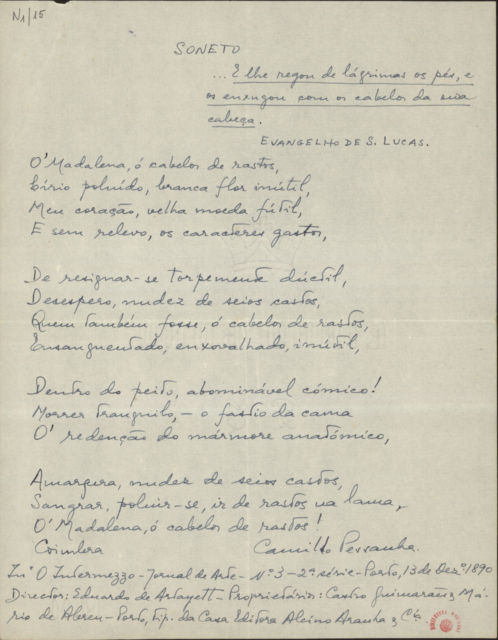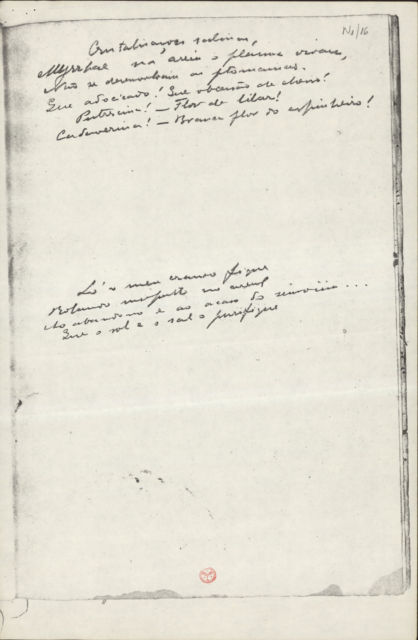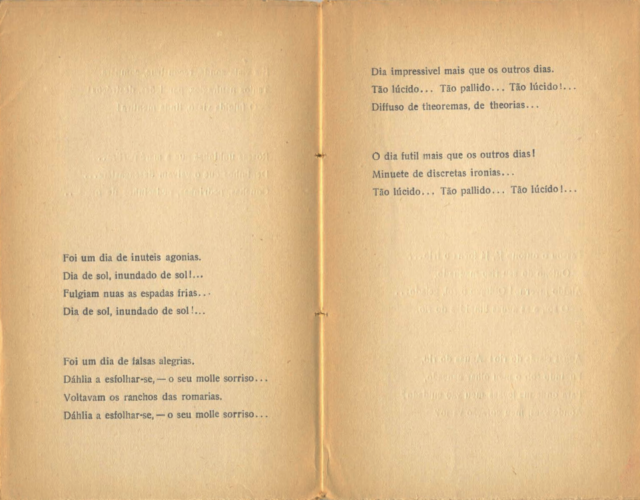In 2016, I sat in front of an old typewriter and gathered together some of my translations of Camilo Pessanha’s poetry and paired them in a notebook with pressed opium poppies. The end product is a small memento of the time I spent perusing the corpus of his work at the Biblioteca Nacional de Lisboa in the late 1990s while on a grant from the Fundação Luso-Americana para o Desenvolvimento, and later the Instituto Camões and the Fundação Oriente. At the time, I found mirrored resonance in my life’s story within his words, and thus flowered my interest in him and his multifaceted prose and poetry.
In Portugal, Camilo Pessanha is considered the exemplar of Symbolist poets, and his work is mandatory reading for high-school students. Clepsydra (Water Clock) and Oito Elegias Chinesas (Eight Chinese Elegies) are his best-known works. He exiled himself to Macau where he was alternately a teacher, judge, and public records clerk. Some think his exile was the result of unrequited love. The colony was not without its literary scene; I would like to think his Symbolist poem Estatua (Statue) found a rebuttal in Maria Anna Acciaioli Tamagnini’s poem of the same title; my rendering of her poetry is here.
He was also an opiómano or “opium addict.”
This is my personal homage to Pessanha and his hallucinatory prose.
